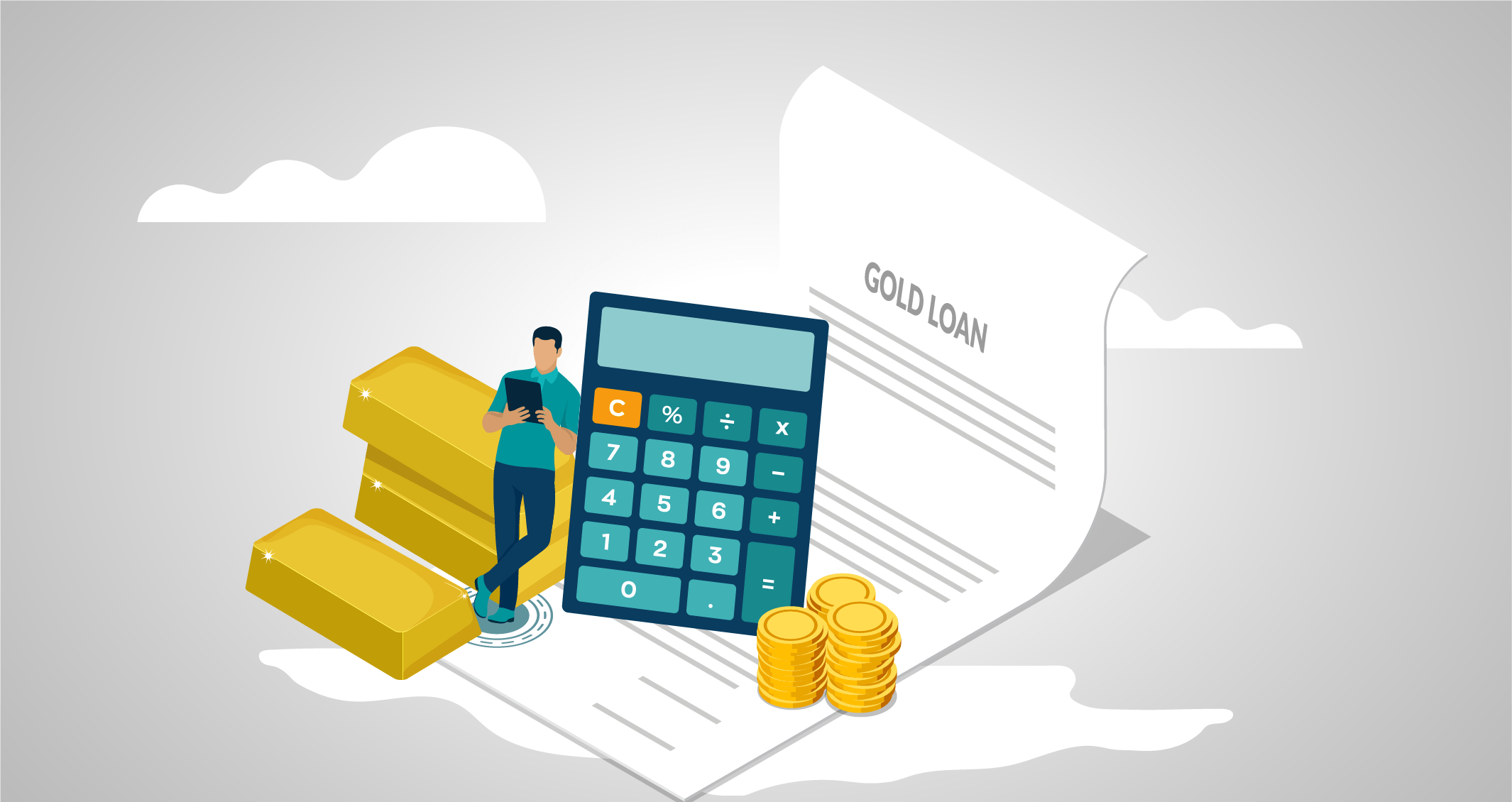Repay Your Gold Loan With These Easy Ideas

Embarking on a gold loan journey? Unlock the secrets to stress-free repayments! Understanding the diverse ways to repay your gold loan isn't just smart; it's your ticket to a hassle-free financial ride. From cash payments at the branch to digital finesse with online platforms, discover how knowing your options can make your gold loan repayment journey as smooth as a pebble. Dive in and let's make financing stress a thing of the past!
Various Modes of Gold Loan Repayment in India
In India, there are various approaches of repaying gold loans, offering flexibility and convenience for borrowers –
Cash Payment at the Branch:
Borrowers can visit the lender's branch and make cash payments toward their gold loan. This is a straightforward and direct method, especially suitable for those who are averse to using digital methods.
- Key Benefit: Borrowers can benefit from a face-to-face transaction, ensuring immediate payment and a sense of security in handling the repayment in cash.
Online Repayment:
Many lenders provide online platforms, including internet banking and mobile apps, allowing borrowers to repay their gold loans electronically.
Key Benefit:
Borrowers can enjoy the convenience of repaying their gold loan from anywhere with internet access. Online platforms provide 24/7 accessibility and the flexibility to manage repayments at one's convenience.
Auto-Debit Facility:
Borrowers can opt for the auto-debit facility, where the EMI amount is automatically deducted from their linked bank account on the due date. This automated process reduces the risk of missing payment deadlines.
Key Benefit: By setting up auto-debit, borrowers ensure timely payments without the need for manual intervention.
Cheque or Demand Draft:
Borrowers can issue post-dated cheques or demand drafts favouring the lender for the repayment of their gold loan.
Key Benefit: Issuing post-dated cheques or demand drafts allows borrowers to plan their repayments systematically. This provides a structured approach for meeting EMI commitments.
NEFT/RTGS Transfer:
Borrowers can use the National Electronic Funds Transfer (NEFT) or Real-Time Gross Settlement (RTGS) systems to transfer funds from their bank accounts to the gold loan account.
Key Benefit: NEFT/RTGS transfers facilitate quick and efficient electronic transactions, minimizing the time and effort required for repayment. It's a secure method widely used for its reliability.
Mobile Wallets and UPI:
With the rise of digital payments, borrowers can leverage mobile wallets and Unified Payments Interface (UPI) apps to make instant and secure repayments.
Key Benefit: Leveraging mobile wallets and UPI apps offers borrowers flexibility and ease of use through their smartphones. The user-friendly interfaces make transactions quick and straightforward.
Gold Loan Repayment Kiosks:
Some lenders provide repayment kiosks at specific locations, allowing borrowers to make payments conveniently. These kiosks may accept cash, cheques, or other acceptable payment modes.
Key Benefit: Repayment kiosks provide borrowers with physical locations for making payments, offering an additional option for those who prefer in-person transactions. This can be especially beneficial for individuals who may not have easy access to banking facilities.
Before selecting a repayment method, borrowers should check with their specific lender to understand the available options and any associated terms and conditions.
Easy Gold Loan Repayment Methods
In terms of principal and interest payment, there are five ways you can repay your gold loan in India –
Deferred Principal Payment:
In this method, borrowers have the option to defer the repayment of the principal amount and pay only the interest during the loan tenure. The principal amount is settled in a lump sum at the end of the loan term. This allows borrowers to manage their cash flow more efficiently throughout the loan duration.
Part Payments:
Borrowers can make partial payments towards the principal amount of the gold loan at various intervals during the loan tenure. These help in reducing the outstanding principal, resulting in lower interest payments. Lenders may allow borrowers to make part payments without any penalties or with nominal charges.
Bullet Payment:
Bullet payment involves the repayment of both the principal and interest in a single lump sum at the end of the loan tenure. This method is suitable for borrowers who prefer to settle the entire loan amount at once. They often use funds from a specific financial event such as maturity of an investment, receiving of a bonus, or sale of an asset.
EMI Payment:
Equated Monthly Instalments (EMIs) involve the repayment of both principal and interest in fixed amounts per month. This is a structured method and the most common one chosen by borrowers for gold loan repayment. It provides borrowers with clarity on their repayment schedule. EMIs are predetermined and continue until the loan is fully repaid.
Prepayment or Foreclosure:
Borrowers have the option to pre-pay or foreclose the gold loan before the scheduled tenure. Pre-payment involves repaying a portion of the outstanding principal before the loan maturity date, while foreclosure means settling the entire outstanding amount. Some lenders may charge a nominal fee for pre-payment or foreclosure, so be sure to know the exact charges before choosing this method.
Each repayment method offers different advantages. Choose the one that aligns with their financial preferences and capabilities. It's crucial to communicate with the lender and fully comprehend the terms associated with each repayment option. To start, search for Gold Loans on Bajaj Markets and choose your preferred repayment options. With flexible interest rates of up to 8.88% p.a., you can borrow up to 75% of your gold’s market value. Knowing your repayment methods ensures your financial journey remains a melody.
